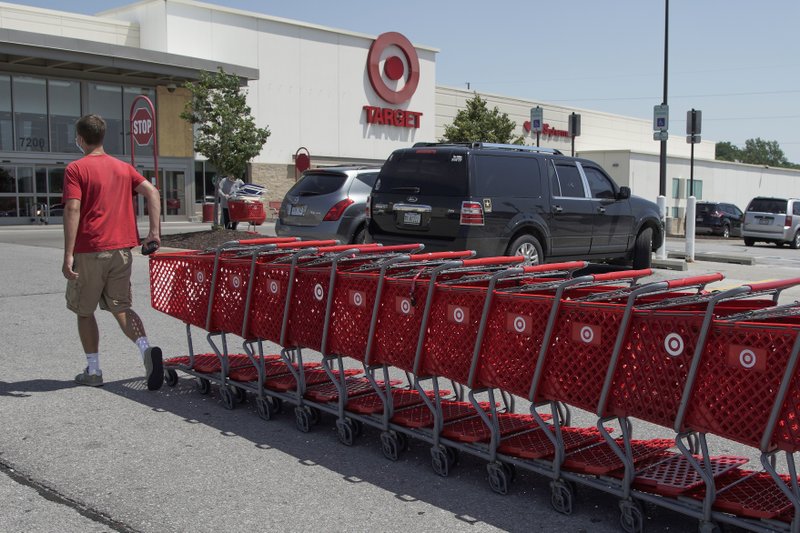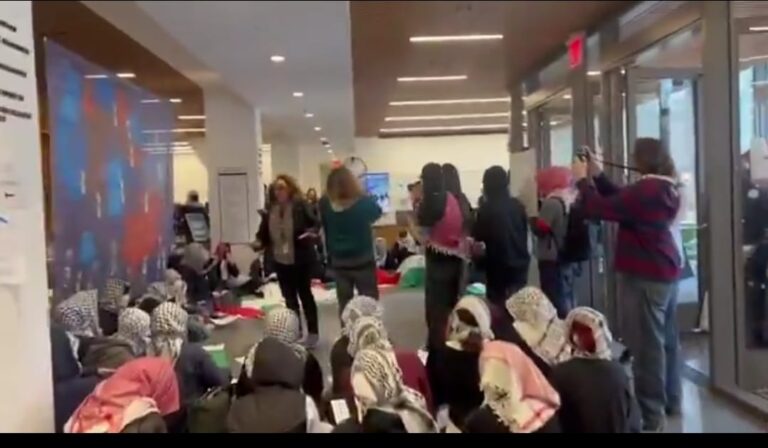The outbreak of the coronavirus has dealt a shock to the global economy with unprecedented speed. Following are developments Wednesday related to the national and global response, the work place and the spread of the virus.
________________________
RETAIL:
— Target’s $15 per hour starting wage for its hourly workers kicks in July 5. That’s up from $13 set in June 2019. Target is also giving out one-time bonuses of $200 to reward workers on the front lines of the coronavirus. With these changes, the Minneapolis-based discounter will have invested nearly $1 billion more this year in its workers than it did last year. It also announced additional extensions of COVID-19 benefits.
— Bedding maker Tempur Sealy International anticipates its second-quarter sales will be down 15% compared with a year earlier, as strong sales in May and early June are mitigating a very difficult April.
The company said Wednesday that its quarter-to-date orders have significantly improved from previous expectations. The improvement in order trends has been broad-based geographically, driven by improving wholesale channel trends and more than 125% growth in global online sales for the quarter-to-date.
BANKS: The FDIC says that profits for banks fell about 70% in the first quarter because of COVID-19, and they quadrupled money set aside against expected losses.
Net income totaled $18.5 billion in first quarter 2020, according to the Federal Deposit Insurance Corp. That’s a decline of $42.2 billion from a year ago. Deposits soared to approximately $1.24 trillion in the first quarter, up from about $258 billion in the previous quarter as many people decided to exit the stock market.
JOBS:
— AT&T has told the Communications Workers of America union that it plans to cut more than 3,400 technician and clerical jobs across the country over the next few weeks. The company also plans to permanently close more than 250 of its Mobility and Cricket Wireless stores, which would impact 1,300 retail jobs.
AT&T didn’t immediately respond to a request for comment.
— Groupon furloughed or initiated exits with approximately 2,700 employees during the first-quarter as it looked for ways to conserve cash amid the pandemic.
The company said in a slide presentation on its website that its performance deteriorated in March and April as it dealt with a significant increase in refunds to customers. But it’s seen business recover quicker than expected as it shifted fast to feature deals on essential products that consumers are looking for, like face masks and hand sanitizer.
— Arts bodies are warning that Britain faces a “cultural catastrophe” because of the pandemic and could see the loss of 400,000 jobs.
A study by think-tank Oxford Economics says the U.K.’s creative industries could lose 74 billion pounds in revenue this year and one in five of the U.K.’s 2 million creative-sector jobs could be lost.
Music, theater, art, design, architecture and publishing generate billions for the British economy each year, but the country’s clubs, theaters, cinemas, concert halls and art galleries shut down in March as part of a nationwide lockdown.
Chief Executive Caroline Norbury of the Creative Industries Federation, which lobbies for arts and culture, called on the government to set up a “cultural renewal fund” and continue support programs that have supported self-employed people and furloughed workers during the lockdown. The Treasury plans to scale back the programs in the next few months.
MARKETS: World markets followed Wall Street higher Wednesday on hopes for a global economic recovery.
TRAVEL:
— Shares of cruise operators are falling Wednesday as Norwegian Cruise Line Holdings announced it’s extending its suspension of global cruise voyages to include all trips embarking between Aug. 1 and Sept. 30. The extension applies to all three cruise brands, Norwegian Cruise Line, Oceania Cruises and Regent Seven Seas Cruises. Norwegian is also cancelling select voyages through October, including Canada and New England sailings, due to travel and port restrictions.
The cancellations exclude September Seattle-based Alaska voyages.
— Southwest Airlines extended through September its promise to book planes lightly enough to leave middle seats open – although the airline, which doesn’t assign seats, won’t stop people from taking middle seats.
U.S. airlines have promised to step up enforcement of their own requirement that passengers wear masks, with some promising to ban customers who don’t wear them. Airline unions want the government to make masks a federal rule, like the ban on smoking in airplane bathrooms, but the Federal Aviation Administration has declined to step in.
HOUSING: Homebuyers are increasingly looking to make purchases in suburban and rural areas. Realtor.com says that in May, online listing views for its website grew by 13% in suburban zip codes, nearly doubling the pace of growth of urban areas.
While time on the market has slowed nationally due to complications surrounding deal closings during the pandemic, suburban and rural markets are seeing lower increases due to strong consumer interest. Time on market increased by 25% in rural areas, 30% in suburban areas and 35% in urban areas year-over-year. This is the widest gap in percent change since realtor.com started tracking the metric four years ago.
(AP)











